VW T-Cross vs Citroen C4 – Differences & prices compared
Compare performance, boot space, consumption and price in one view.
Find out now: which car is the better choice for you – VW T-Cross or Citroen C4?
The VW T-Cross (SUV) comes with a Petrol engine and Manuel or Automatic transmission. In comparison, the Citroen C4 (SUV) features a Petrol, Electric or Petrol MHEV engine with Automatic transmission.
When it comes to boot capacity, the VW T-Cross offers 455 L, while the Citroen C4 provides 510 L – depending on how much space you need. If you’re looking for more power, decide whether the 150 HP of the VW T-Cross or the 156 HP of the Citroen C4 suits your needs better.
In terms of consumption, the values are 5.40 L per 100 km for the VW T-Cross, and 14.50 kWh4.70 L for the Citroen C4.
Price-wise, the VW T-Cross starts at 21100 £, while the Citroen C4 is available from 20000 £. Compare all the details and find out which model fits your lifestyle best!
In the battle of compact crossovers, the Citroen C4 stands out with its distinctive design and impressive comfort, delivering a smooth ride with its advanced suspension system. Meanwhile, the VW T-Cross boasts a practical, user-friendly interior and consistently reliable performance, making it a strong contender for those prioritizing functionality. While the C4 charms with French flair and comfort, the T-Cross excels in versatility and dependability.
VW T-Cross
The VW T-Cross stands out as a versatile compact SUV that combines practicality with style. Its interior design offers a spacious and flexible layout, ideal for both city driving and weekend adventures. With its modern infotainment system, the T-Cross ensures drivers and passengers stay connected throughout their journeys.
details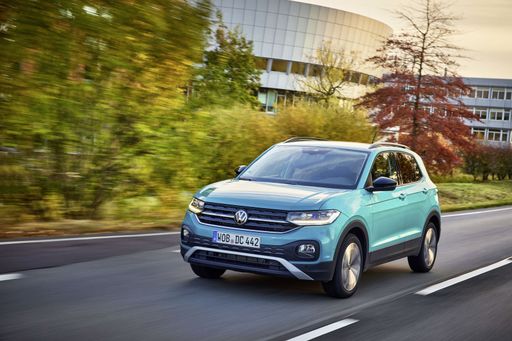 @ Volkswagen
@ Volkswagen
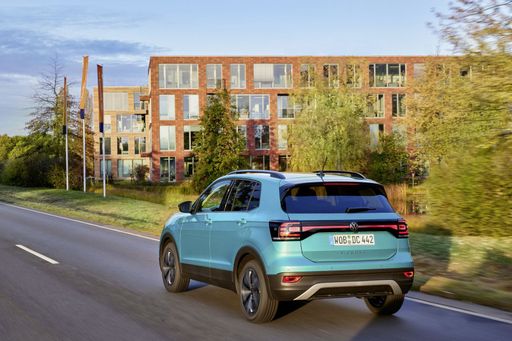 @ Volkswagen
@ Volkswagen
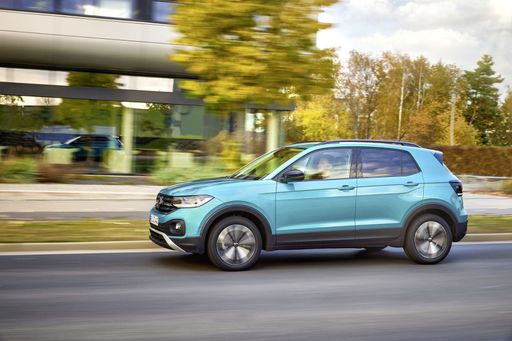 @ Volkswagen
@ Volkswagen
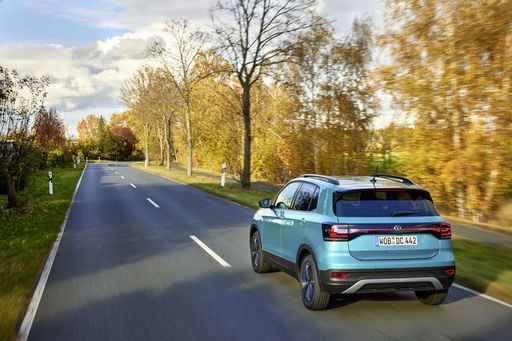 @ Volkswagen
@ Volkswagen
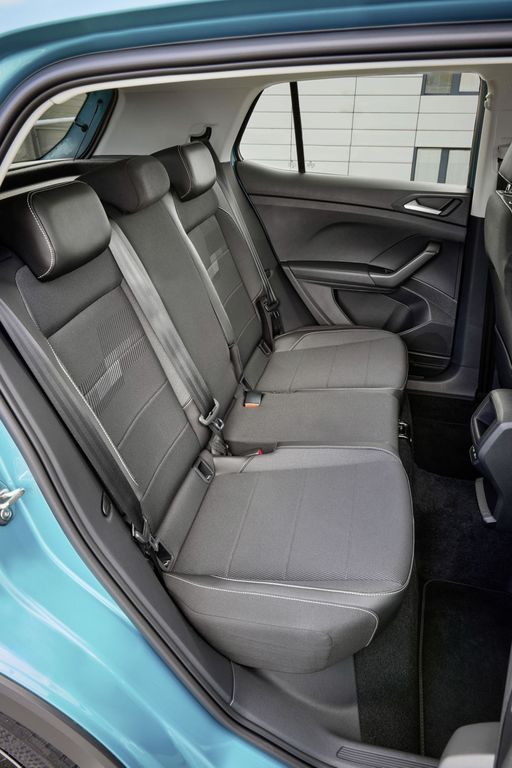 @ Volkswagen
@ Volkswagen
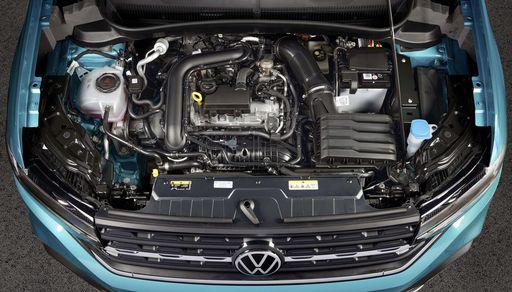 @ Volkswagen
@ Volkswagen
Citroen C4
The Citroen C4 combines contemporary style with a comfortable driving experience, making it a standout choice in the compact car segment. Its sleek silhouette is complemented by a range of thoughtful interior features, providing both driver and passengers with a pleasant journey. With modern technology seamlessly integrated into its design, the C4 offers an efficient performance that caters to urban and rural environments alike.
details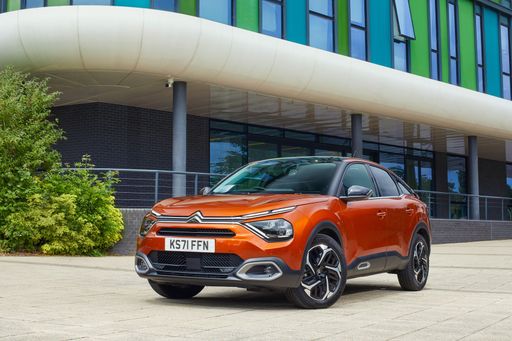 @ media.stellantis.com
@ media.stellantis.com
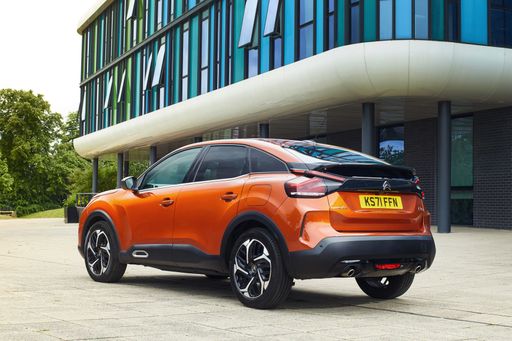 @ media.stellantis.com
@ media.stellantis.com
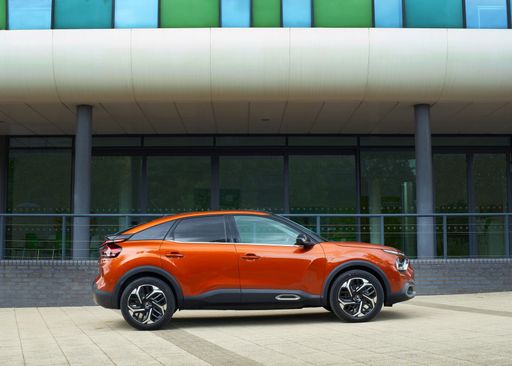 @ media.stellantis.com
@ media.stellantis.com
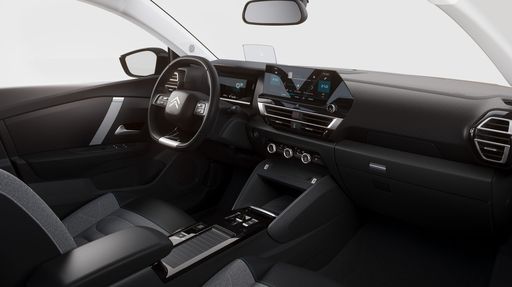 @ media.stellantis.com
@ media.stellantis.com
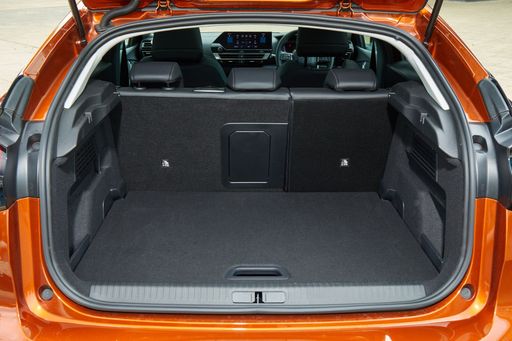 @ media.stellantis.com
@ media.stellantis.com
Citroen C4 vs VW T-Cross: A Detailed Comparison of Two Compact SUVs
In the ever-evolving world of compact SUVs, the Citroen C4 and the VW T-Cross are two models that have been capturing the attention of enthusiasts and casual drivers alike. With the 2025 model year of the Citroen C4 and the 2024 VW T-Cross, both vehicles present their own unique blend of performance, style, and innovation. Let's delve into the specifics of these two contenders to see what sets them apart.
Design and Dimensions
The Citroen C4 stands out with its distinctive styling and modern design aesthetics. Measuring 4,350 mm in length, it slightly surpasses the more compact VW T-Cross, which measures 4,127 mm. This additional length translates to a spacious cabin and a competitive trunk capacity of up to 510 liters for the C4, compared to the 455-liter capacity of the T-Cross.
When it comes to height, the T-Cross is slightly taller at 1,573 mm compared to the C4's 1,525 mm, lending the VW a more traditional SUV stance. Both vehicles offer a five-door configuration, making them practical choices for families and outdoor enthusiasts.
Powertrain Options and Performance
The Citroen C4 provides drivers with a versatile range of powertrains, including petrol, hybrid, and electric options, catering to a variety of preferences. It boasts power outputs ranging from 101 to 156 HP with electric versions offering up to 136 HP. The acceleration for these models varies with the quickest 0-100 km/h sprints accomplished in 8.0-10.8 seconds.
In contrast, the VW T-Cross focuses solely on petrol engines, delivering between 95 and 150 HP. It offers a manual gearbox and a dual-clutch automatic option, with the fastest acceleration from 0-100 km/h achieved in 8.4 seconds.
Fuel Efficiency and Eco-friendliness
Efficiency is a key consideration for many buyers, and here the Citroen C4 showcases impressive figures, especially for its electric variant with consumption rates as low as 14.5 kWh/100 km and an electric range up to 427 km. For petrol versions, the C4 achieves as low as 4.7 L/100 km, while the T-Cross petrol engines achieve between 5.6 to 6.0 L/100 km.
On the environmental front, the C4 offers a superior CO2 efficiency class ranging from A to C, with emissions starting from 0 g/km for electric models. The T-Cross, primarily being petrol, holds a CO2 efficiency class D, beginning at 127 g/km.
Interior and Technology
Both the Citroen C4 and VW T-Cross offer seating for five, but the Citroen leans heavily on providing a tech-laden cabin optimized for comfort and convenience. The C4 is praised for its innovative tech features and spacious interior, enhanced by its larger dimensions.
The VW T-Cross, meanwhile, offers a robust selection of standard tech features ensuring connectivity and a seamless driving experience. It compensates for its smaller dimensions with a clever design that maximizes available space.
Final Verdict
Choosing between the Citroen C4 and the VW T-Cross largely depends on individual priorities. For those seeking variety in engine choice, particularly eco-friendly electric options and a spacious interior, the Citroen C4 emerges as a strong contender. However, the VW T-Cross holds its own with efficient petrol engines, a slightly elevated off-road design, and the reliability that VW is known for.
Both vehicles offer compelling packages in the compact SUV segment, making them worthy considerations for any potential buyer in search of style, versatility, and innovation.

|

|
|
|
|
Costs and Consumption |
|
|---|---|
|
Price
21100 - 31500 £
|
Price
20000 - 32000 £
|
|
Consumption L/100km
5.4 - 6 L
|
Consumption L/100km
4.7 - 5.9 L
|
|
Consumption kWh/100km
-
|
Consumption kWh/100km
14.5 - 15.3 kWh
|
|
Electric Range
-
|
Electric Range
354 - 427 km
|
|
Battery Capacity
-
|
Battery Capacity
46 - 51 kWh
|
|
co2
124 - 136 g/km
|
co2
0 - 134 g/km
|
|
Fuel tank capacity
40 L
|
Fuel tank capacity
44 - 50 L
|
Dimensions and Body |
|
|---|---|
|
Body Type
SUV
|
Body Type
SUV
|
|
Seats
5
|
Seats
5
|
|
Doors
5
|
Doors
4 - 5
|
|
Curb weight
1267 - 1338 kg
|
Curb weight
1341 - 1659 kg
|
|
Trunk capacity
455 L
|
Trunk capacity
380 - 510 L
|
|
Length
4127 mm
|
Length
4350 - 4580 mm
|
|
Width
1784 mm
|
Width
1800 - 1834 mm
|
|
Height
1573 mm
|
Height
1520 - 1525 mm
|
|
Payload
463 - 480 kg
|
Payload
381 - 406 kg
|
Engine and Performance |
|
|---|---|
|
Engine Type
Petrol
|
Engine Type
Petrol, Electric, Petrol MHEV
|
|
Transmission
Manuel, Automatic
|
Transmission
Automatic
|
|
Transmission Detail
Manual Gearbox, Dual-Clutch Automatic
|
Transmission Detail
Automatic Gearbox, Dual-Clutch Automatic, Reduction Gearbox
|
|
Drive Type
Front-Wheel Drive
|
Drive Type
Front-Wheel Drive
|
|
Power HP
95 - 150 HP
|
Power HP
110 - 156 HP
|
|
Acceleration 0-100km/h
8.4 - 11.3 s
|
Acceleration 0-100km/h
8 - 10.8 s
|
|
Max Speed
180 - 200 km/h
|
Max Speed
150 - 210 km/h
|
|
Torque
175 - 250 Nm
|
Torque
205 - 270 Nm
|
|
Number of Cylinders
3 - 4
|
Number of Cylinders
3
|
|
Power kW
70 - 110 kW
|
Power kW
81 - 115 kW
|
|
Engine capacity
999 - 1498 cm3
|
Engine capacity
1199 cm3
|
General |
|
|---|---|
|
Model Year
2024 - 2025
|
Model Year
2025
|
|
CO2 Efficiency Class
D, E
|
CO2 Efficiency Class
D, A, C
|
|
Brand
VW
|
Brand
Citroen
|
VW T-Cross
The VW T-Cross: A Compact SUV with a Punch
Volkswagen’s T-Cross is stamped as one of the most dynamic models in its segment, combining compact dimensions with versatile features. Designed to bring the SUV experience to an everyday environment, the T-Cross ensures both urban convenience and a robust driving performance. Let's delve deeper into its technical specifications and innovative offerings.
Efficient Powertrains and Performance
Under the hood, the VW T-Cross harnesses efficient powertrains including several petrol engine options, ranging from a modest 95 PS to a more dynamic 150 PS. The model's engine configurations offer either manual or automatic transmission options, coupled with a front-wheel-drive system. These specifications aim to strike a balance between spirited driving and fuel efficiency.
The T-Cross comes with a turbocharged 1.0-litre or 1.5-litre TSI engine, equipped with cylinder deactivation (ACT) technology, enhancing fuel economy and reducing emissions. The engines produce a torque range from 175 to 250 Nm, making everyday driving smooth and responsive.
Fuel Efficiency and Environmental Considerations
The VW T-Cross stands out for its commendable fuel consumption figures, running between 5.6 to 6 litres per 100 km. This classifies it within a respectable CO2 efficiency class D, making it an appealing choice for drivers conscious of both their budgets and environmental footprint. The CO2 emissions range from 127 to 135 g/km, reflecting Volkswagen’s commitment to sustainability.
Design and Utility
Sporting a compact design, the T-Cross measures 4127 mm in length, 1784 mm in width, and 1573 mm in height, offering easy manoeuvrability coupled with an elevated driving position. The SUV hosts a 455-litre boot space, providing ample room for personal belongings or shopping expeditions. Priding itself on practical utility, it can comfortably seat five passengers and supports a maximum load capacity of up to 480 kg.
Comfort and Technology
The T-Cross comes available in various trim levels, such as the GOAL, Life, R-Line, and Style, each offering distinct features tailored to customer preferences. Connectivity and infotainment systems are given priority with the availability of a touchscreen display, ensuring convenience through seamless smartphone integration, navigation systems, and a suite of driver assistance features.
A Conclusion on the VW T-Cross
The VW T-Cross is an embodiment of modern ingenuity within the compact SUV market. It harmonises performance with practicality and presents a modernistic approach to urban driving. Whether you seek efficiency, cutting-edge technology, or ample space to accommodate daily activities, the T-Cross makes a compelling proposition. With a pricing bracket spanning from €24,355 to €36,530, the T-Cross caters to a broad array of budgets while promising a touch of Volkswagen's famed quality and innovation.
Citroen C4
A Glimpse into the Citroën C4: Design Meets Technology
The Citroën C4 has long been a symbol of innovation and style in the world of compact cars. Combining sleek design with cutting-edge technology, the 2023-2024 models offer drivers a host of options and features tailored to modern needs. Whether powered by petrol, diesel, or hybrid engines, the Citroën C4's various configurations offer something for everyone.
Powertrain Options: Choosing Your Perfect Fit
The Citroën C4 accommodates a range of power preferences, offering diesel, petrol, mild-hybrid, and 100% electric versions. Its engine choices range from a 101 PS petrol engine to a 156 PS electric motor, providing versatile performance across the board. The hybrid models offer an impressive balance of power and efficiency, with the mild-hybrid petrol models achieving consumption rates as low as 4.8 L/100km. For those leaning towards eco-friendly options, the electric variants do not disappoint, boasting an economical use of 14.7 to 15.3 kWh/100km, with a robust range extending up to 422 km.
Advanced Drive: Transmission and Handling
Every Citroën C4 is equipped with front-wheel drive, ensuring a stable and confident driving experience. The models offer both manual and automatic transmissions, with choices such as a slick automatic gearbox or a manual shift for those who prefer a more hands-on driving experience. The automatic transmissions enhance driving comfort, particularly in urban areas, while the manual alternatives cater to enthusiasts who enjoy a more engaged driving style.
Interior Innovation: Comfort and Connectivity
Inside, the Citroën C4 does not disappoint. With seating for five and ample boot space ranging from 380 to 510 litres, it ensures comfort and practicality. Advanced technological features include a multifaceted infotainment system that supports seamless connectivity, making every journey as enjoyable as possible. The array of trim lines like Max and Plus offer varying degrees of luxury and convenience, allowing customers to tailor their vehicle to their personal preferences.
Performance and Environmental Impact
The C4's performance metrics are equally impressive, with acceleration from 0-100 km/h as quick as 8 seconds and a top speed of up to 206 km/h in selected models. The CO2 efficiency rating of the C4 spans from class A to D, ensuring drivers can find a version that aligns with their sustainability goals without compromising on performance.
Safety and Future-Ready Features
Citroën has equipped the C4 with a range of safety features designed to protect drivers and passengers alike. From advanced driver assistance systems to robust structural integrity, the C4 makes safety a priority. Additionally, forward-thinking features such as adaptive cruise control and lane-keeping assist anticipate future driving needs, keeping the Citroën C4 at the forefront of automotive innovation.
Conclusion: The Citroën C4 Experience
Citroën's C4 continues to stand out in a competitive market by offering innovative solutions that cater to diverse driving preferences. With its blend of stylish design, multifaceted drivetrain choices, and cutting-edge technology, the C4 embodies a modern vision of what a compact car can be, catering to drivers who value performance, economy, and style.
Which drive types are available for the VW T-Cross?
Available as Front-Wheel Drive.
The prices and data displayed are estimates based on German list prices and may vary by country. This information is not legally binding.
